- Login
Critical Spatial Practice
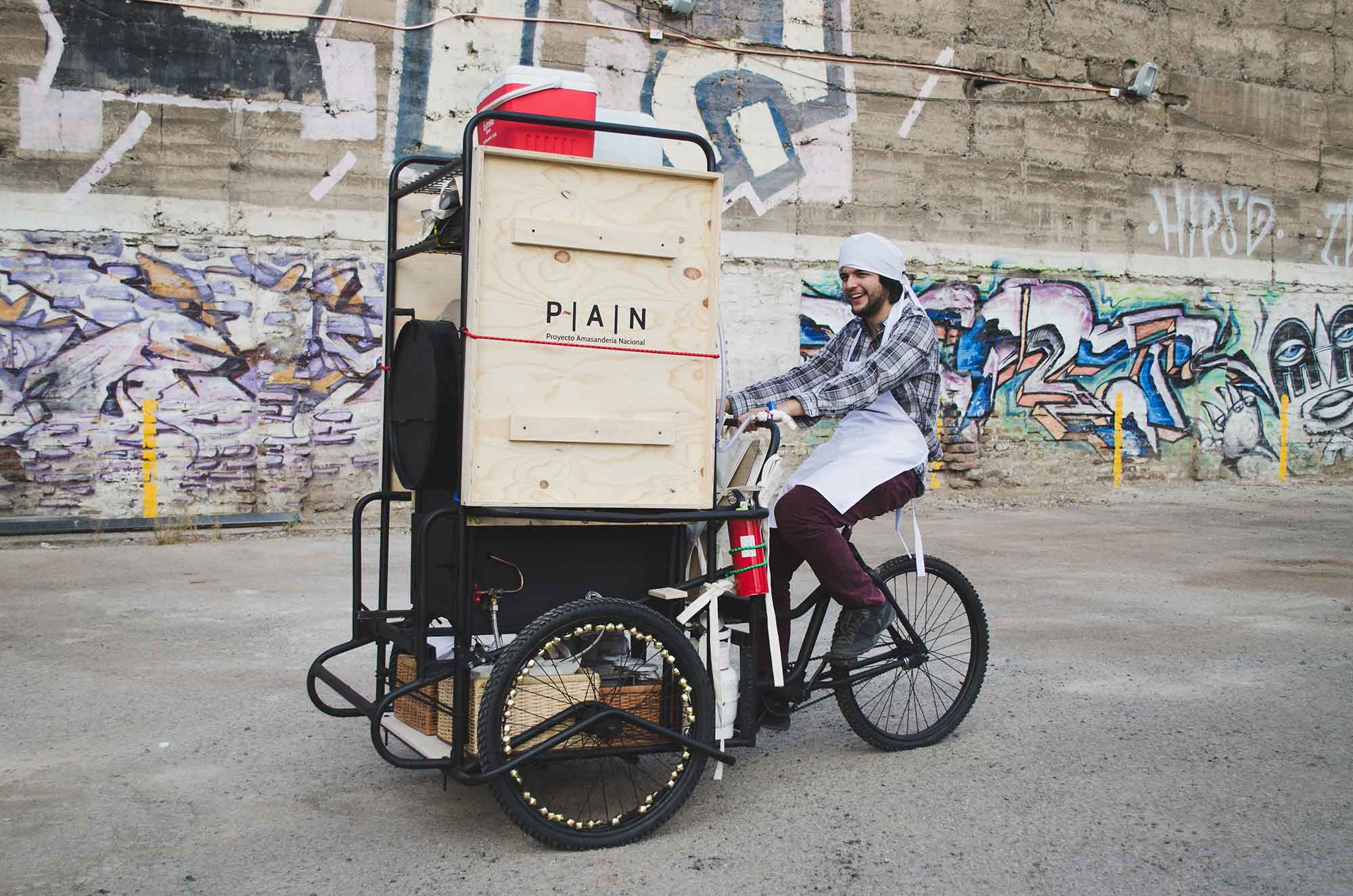
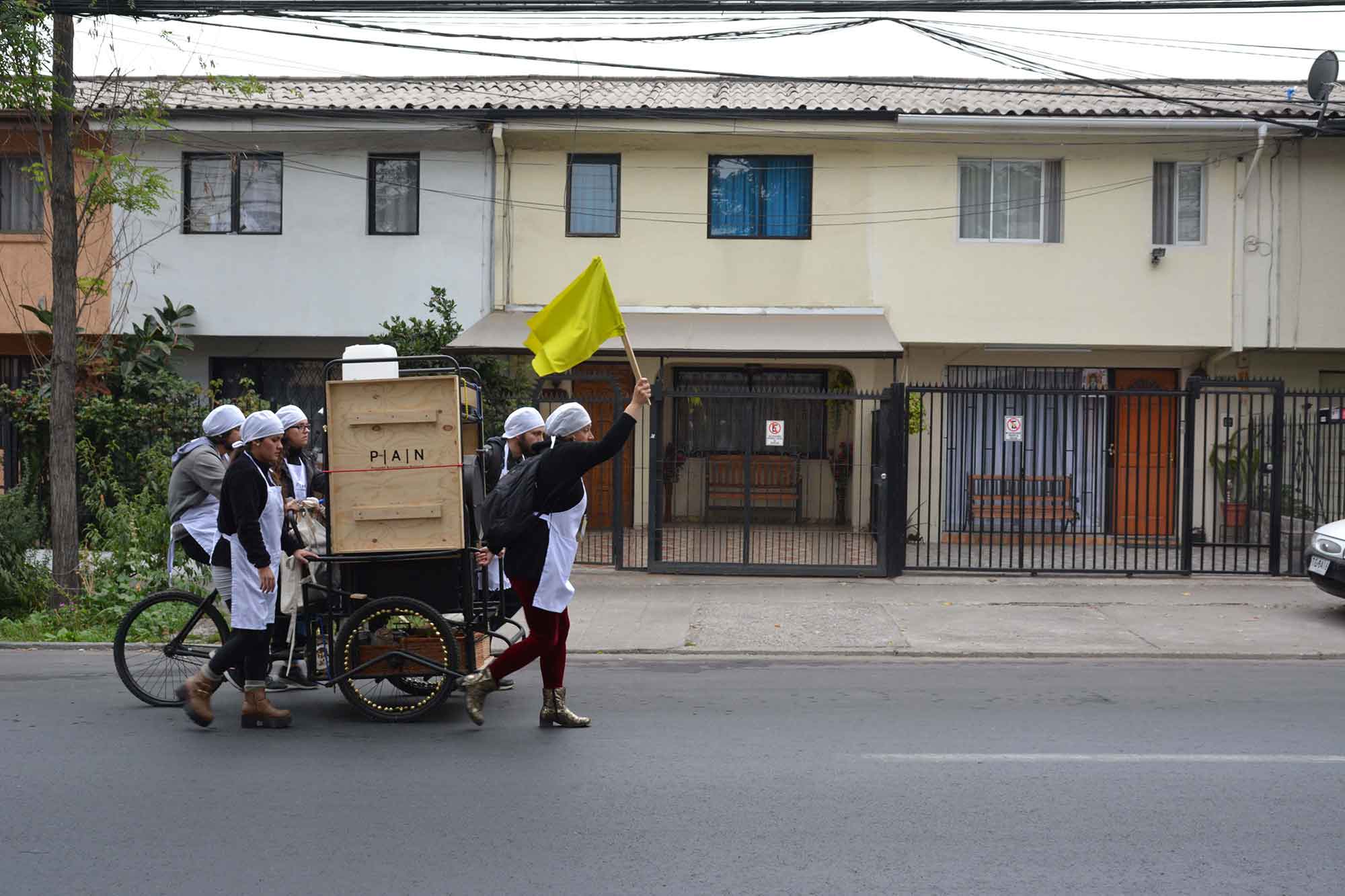
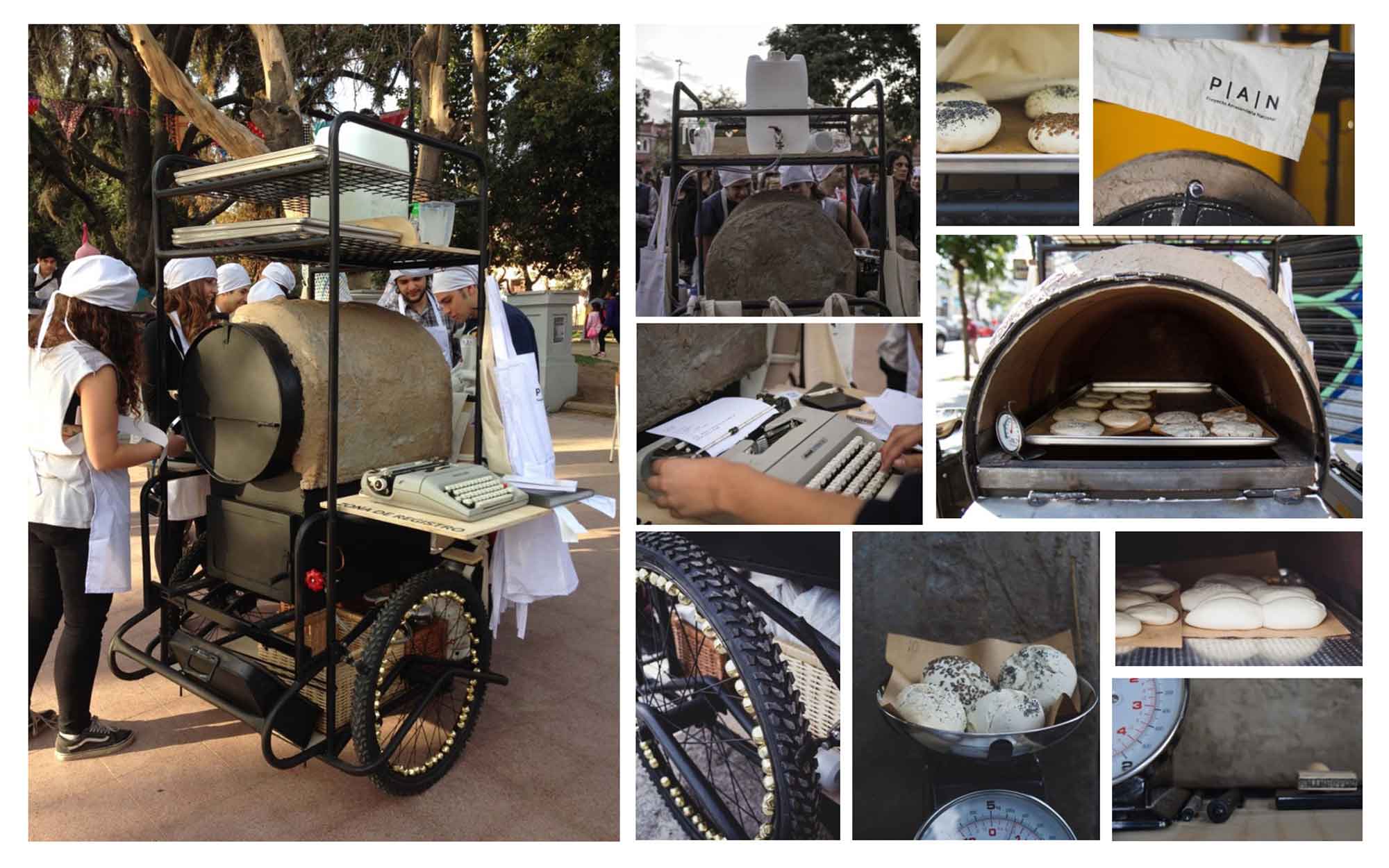
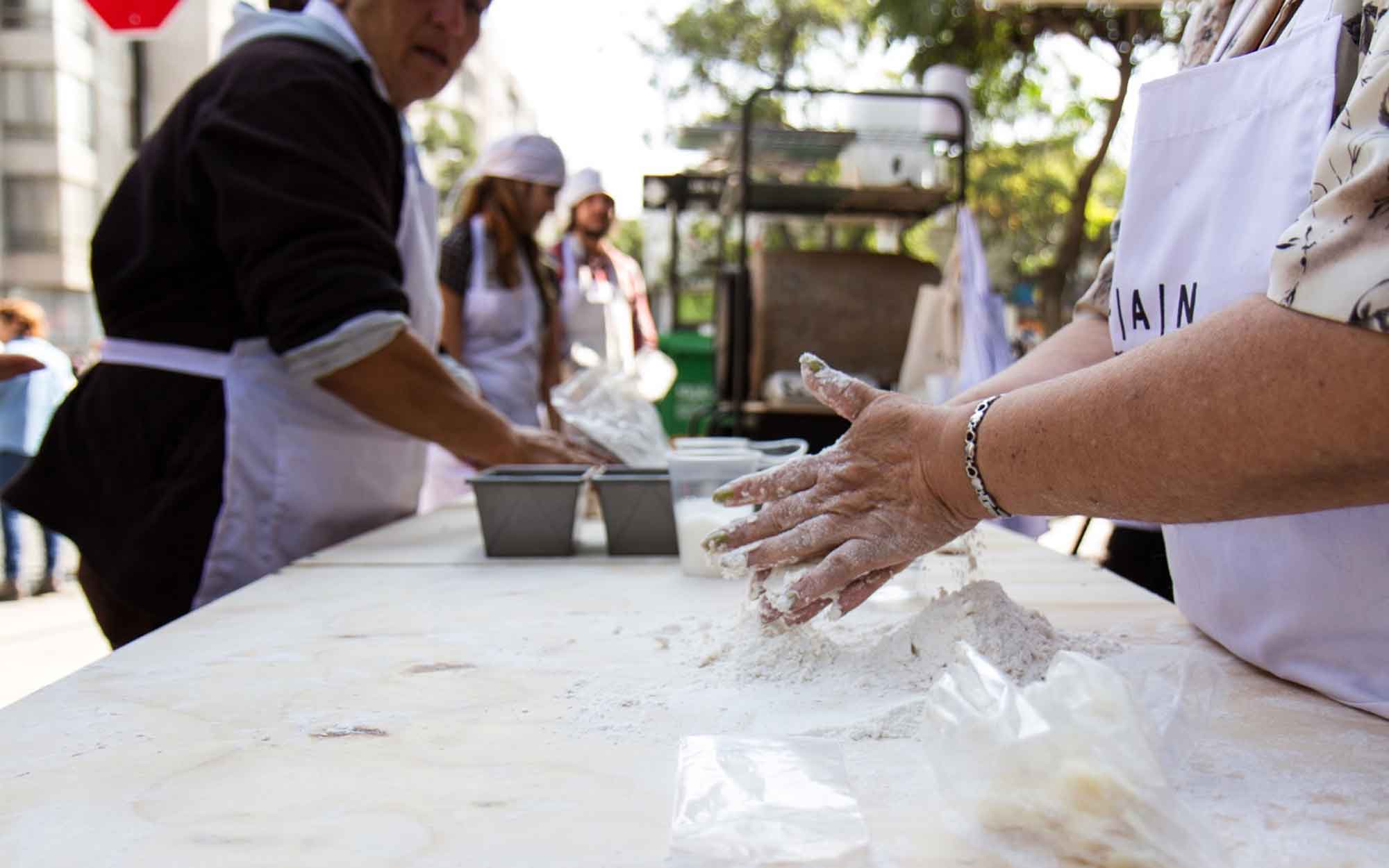
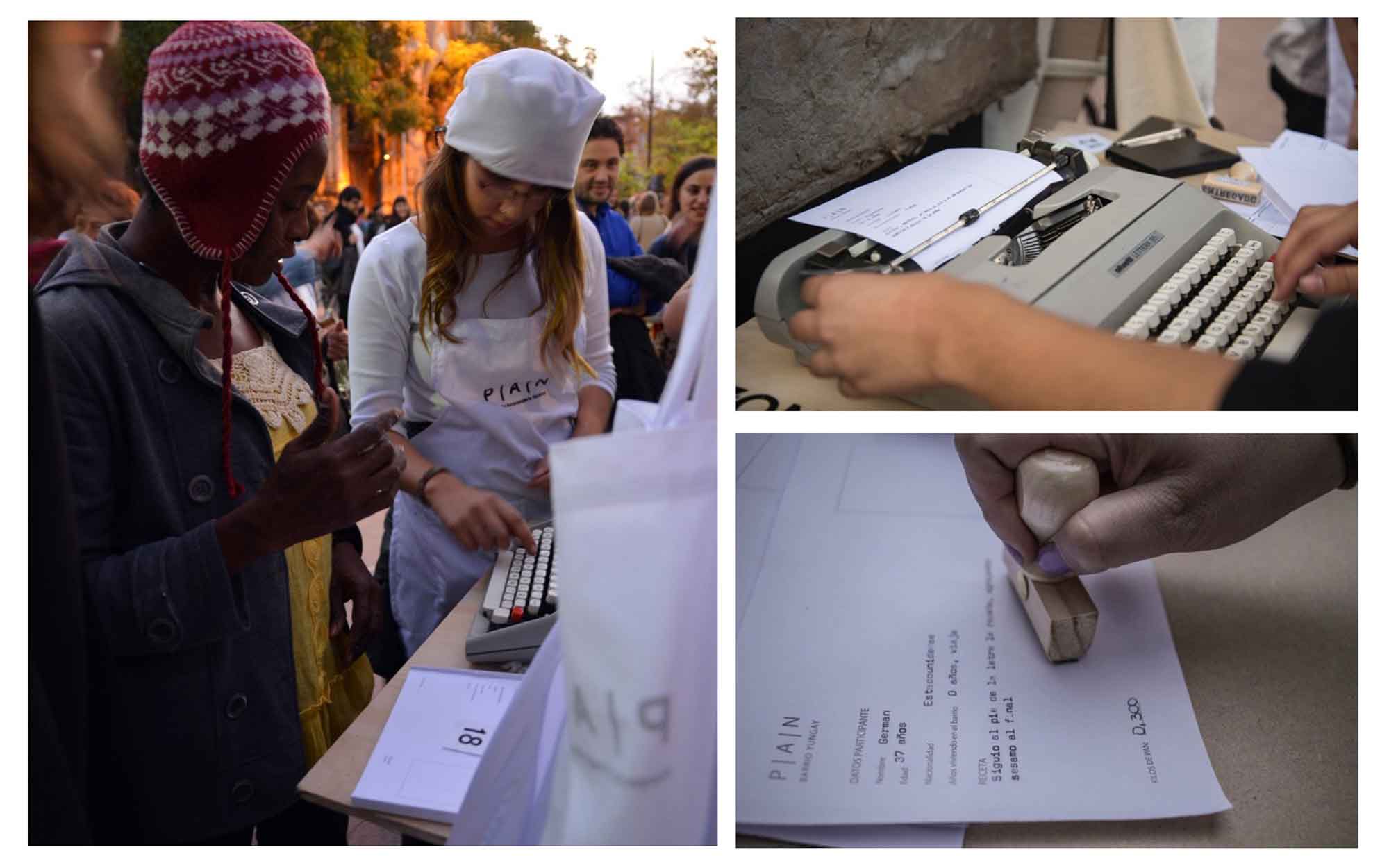
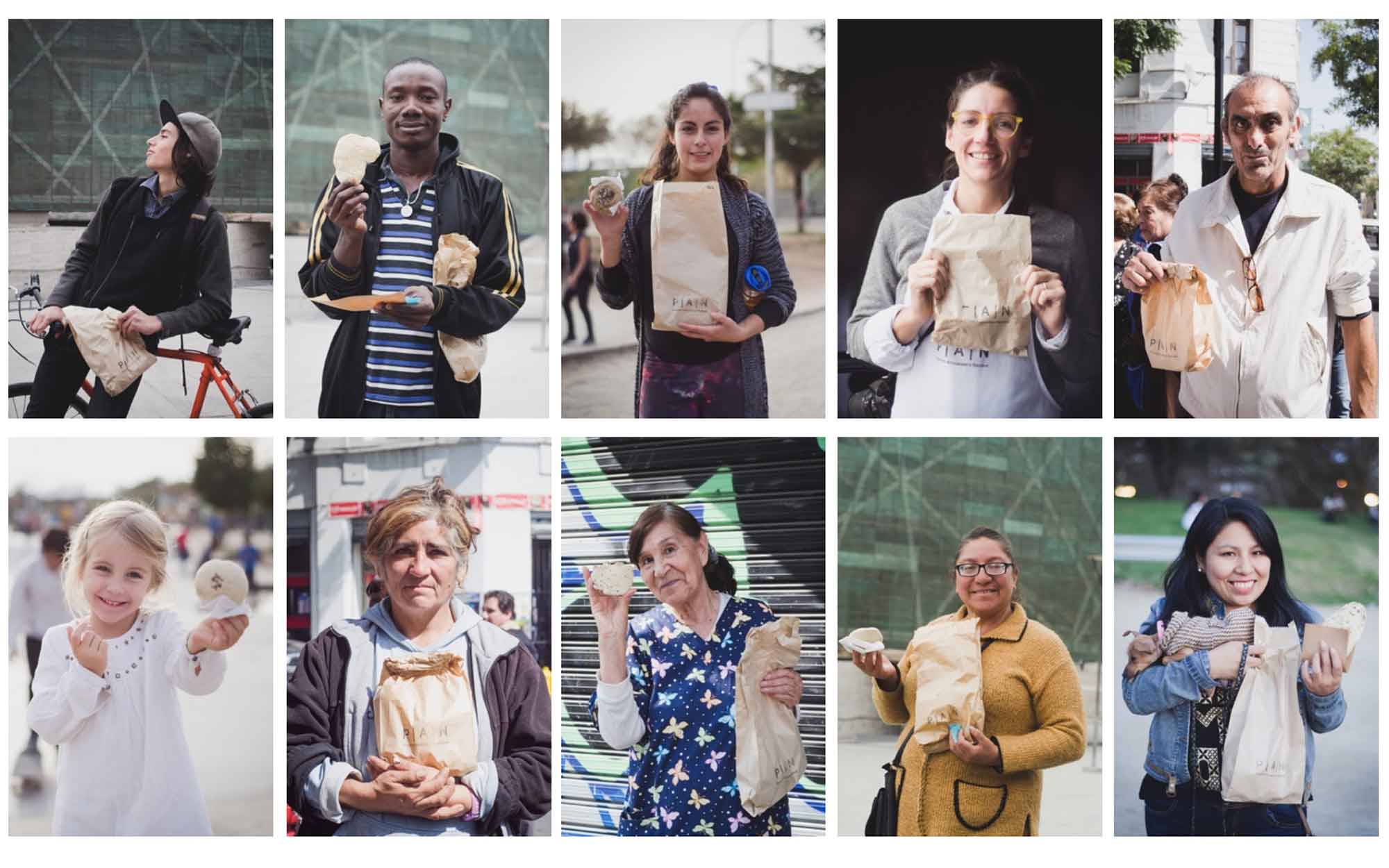
Proyecto Amasandería Nacional is a mobile bakery that travels the streets of barrio Yungay (Santiago, Chile) inviting the newly arrived communities of immigrants to participate in a collective action: to bake bread in public space.
Proyecto Amasandería Nacional is a mobile bakery that travels the streets of barrio Yungay (Santiago, Chile) inviting the newly arrived communities of immigrants to participate in a collective action: to bake bread in public space. Part urban performance and part ethnographic machine, P | A | N uses the process of breadmaking – in its universal simplicity and cultural density – as a vehicle for social integration within a neighbourhood challenged by the flows and clashes of new cultures.
A typical baker’s tricycle modified to transport a traditional clay oven along other documentation devices, travelled a total of 20 kms during the 10-day intervention, baking more than 75 kilos of bread and collecting a total of 287 recipes from participants. The documented recipes give account of the variety of stories, nationalities and cultural diversity that exist today in Yungay.
Catalina Pollak Williamson is artist, architect and urban activist working and researching cross-disciplinary processes that use participation, play and urban performance as methodologies to drive urban and social change. She is particularly interested in the potential of play as a relational process that can contribute to the development of capabilities and civic agency in the production of more empowered and engaged citizens. This is the subject of her current doctoral research project at the Development Planning Unit in The Bartlett, UCL.
Since 2012, she has run Public Interventions, a collaborative platform for the production of socially-engaged participatory projects through socio-spatial interventions in contested urban contexts. The work questions new forms of space production and the development of temporary practices of ‘commoning’ to connect and engage communities with their built environment.
She currently holds a teaching position at the University of East London.
My work explores the idea that certain forms of play can also be critical. Drawing from the concept of critical spatial practice I have coined the term critical play, which I understand as a relational situated process that is both highly engaging while allowing the distance for self-reflexive criticality. I see in the practice of critical play a useful methodology for dealing with contexts of social and urban conflict, or as a tool for enhancing our perception and relation with the built environment.
PUBLIC WORKS, Mobile Porch (2000), London. On roaming and the temporary occupation of public space.
Raumlabor, Generator (several years and cities). On the collective production in public space. https://raumlabor.net/generator/
Future Farmers, Flatbread Society, (2013-ongoing), Oslo. On bread. A very inspirational recent discovery. http://www.flatbreadsociety.net/



































































